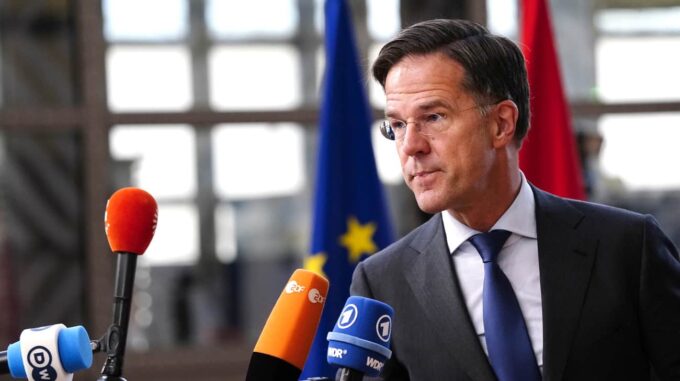The NATO Secretary General Warns: Russia Could Attack the Alliance Within the Next Five Years

In the current context of international tension and global security challenges, the pressing issue is the potential aggression by Russia against NATO member countries. NATO Secretary General Jens Stoltenberg, speaking at a recent event in London, made a clear and alarming prediction: given Russia’s military buildup, there is a high probability that Russia could launch an open attack on NATO countries within the next five years. This statement serves as a stark warning about the seriousness of current trends in the global security arena. According to Stoltenberg, Russia, by actively expanding its military capabilities and reaching a level where an attack on Western countries becomes a realistic military threat in the short- or medium-term, is increasingly dangerous. He also emphasized that the situation is complicated by Russia's strategic alliance with China, Iran, and North Korea, which further enhances its military potential and options. Stoltenberg pointed out that Russia is currently actively rebuilding its armed forces using advanced technologies from China, and is already producing more weapons than previously expected. Specifically, he highlighted that in just three months, Russia is manufacturing quantities of ammunition comparable to the annual production of all NATO countries. He also cited plans by the Russian defense industry—expecting the release of 1,500 tanks, 3,000 armored vehicles, and 200 Iskander missile systems this year. According to Stoltenberg, there is no need for concealment—Russia's current military balance is not just potential but a real threat that must be taken seriously. He stressed that Russia is investing in high-tech weapons capable of moving at speeds dozens of times faster than sound. This means distances between European capitals could quickly shrink, making confrontation more imminent than ever before. In this context, Stoltenberg stated that "there is no longer East or West—there is only NATO," which must mobilize and respond to this new reality that poses a threat not only to individual countries but to the entire continent. As NATO’s Secretary General emphasized, the situation demands increased attention and active defense measures. He called for strengthening collective defense on the Alliance’s eastern flank, where the main tensions currently lie. Meanwhile, senior EU officials and Western intelligence agencies once again confirmed that Moscow and Tehran openly express their ambitions regarding future military scenarios. Specifically, EU Defense Commissioner Jüri Luik, referencing intelligence data, noted that Russia is considering the possibility of open aggression against EU member states within the upcoming years. He stated that Russia perceives itself as a participant in a systemic conflict with the West and is fully prepared for large-scale war with NATO. This indicates a high level of tension and the necessity for preventative measures to deter potential aggression. It's also important to highlight that Germany's Federal Intelligence Service actively warns that a new level of confrontation between Russia and the West could lead to a large-scale military campaign, and that the priority now is to prevent further escalation. An interview with EU Commissioner Luik underscores that the prospects for peace in Ukraine and regional stability depend directly on the ability to restrain the aggressor. According to him, gradual de-escalation or complete resolution of the conflict is impossible without increased military readiness and strategic diplomatic efforts. Therefore, based on this information, the threatening picture of the future becomes increasingly clear. The conclusions are unambiguous: Russia continues to bolster its military potential, and its advanced industry, new technologies, and strategic military plans make NATO and the EU's defense readiness even more critical. Given the seriousness of the situation, leading NATO countries must coordinate their actions as quickly as possible to inform and effectively counter potential aggression, which could occur within the next few years. Any delay may cost tens of thousands of lives and jeopardize the security of the entire continent.

